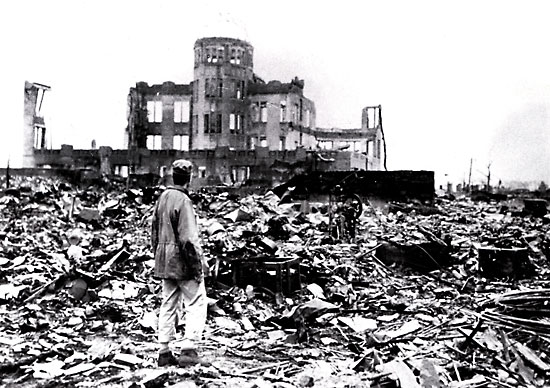Hiroshima, August 6, 1945.
By Norm Dixon
August 6 and August 9 2009 mark the 64th anniversaries of the US atomic-bomb attacks on the Japanese cities of Hiroshima and Nagasaki. In Hiroshima, an estimated 80,000 people were killed in a split second. Some 13 square kilometres of the city were obliterated. By December, at least another 70,000 people had died from radiation and injuries.
Three days after Hiroshima's destruction, the US dropped an A-bomb
on Nagasaki, resulting in the deaths of at least 70,000 people before
the year was out.
Since 1945, tens of thousands more residents of the two
cities have continued to suffer and die from radiation-induced cancers,
birth defects and still births.
A tiny group of US rulers met secretly in Washington and
callously ordered this indiscriminate annihilation of civilian
populations. They gave no explicit warnings. They rejected all
alternatives, preferring to inflict the most extreme human carnage
possible. They ordered and had carried out the two worst single terror acts in
human history.




 By Tomas Freitas
By Tomas Freitas